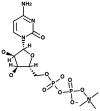Citicoline in addictive disorders: a review of the literature
- PMID: 24950234
- PMCID: PMC4139283
- DOI: 10.3109/00952990.2014.925467
Citicoline in addictive disorders: a review of the literature
Abstract
Background: Citicoline is a dietary supplement that has been used as a neuroprotective agent for neurological disorders such as stroke and dementia. Citicoline influences acetylcholine, dopamine, and glutamate neurotransmitter systems; serves as an intermediate in phospholipid metabolism; and enhances the integrity of neuronal membranes. Interest has grown in citicoline as a treatment for addiction since it may have beneficial effects on craving, withdrawal symptoms, and cognitive functioning, as well as the ability to attenuate the neurotoxic effects of drugs of abuse.
Objectives: To review the literature on citicoline's use in addictive disorders.
Methods: Using PubMed we conducted a narrative review of the clinical literature on citicoline related to addictive disorders from the years 1900-2013 using the following keywords: citicoline, CDP-choline, addiction, cocaine, alcohol, substance abuse, and substance dependence. Out of approximately 900 first hits, nine clinical studies have been included in this review.
Results: Most addiction research investigated citicoline for cocaine use. The findings suggest that it is safe and well tolerated. Furthermore, citicoline appears to decrease craving and is associated with a reduction in cocaine use, at least at high doses in patients with both bipolar disorder and cocaine dependence. Limited data suggest citicoline may also hold promise for alcohol and cannabis dependence and in reducing food consumption.
Conclusions: Currently, there is limited research on the efficacy of citicoline for addictive disorders, but the available literature suggests promising results. Future research should employ larger sample sizes, increased dosing, and more complex study designs.
Keywords: Addiction; alcohol; bipolar disorder; citicoline; cocaine; methamphetamine; substance abuse; substance dependence; substance use.
Figures
Similar articles
-
A randomized, placebo-controlled trial of citicoline add-on therapy in outpatients with bipolar disorder and cocaine dependence.J Clin Psychopharmacol. 2007 Oct;27(5):498-502. doi: 10.1097/JCP.0b013e31814db4c4. J Clin Psychopharmacol. 2007. PMID: 17873684 Clinical Trial.
-
Short-term treatment with citicoline (CDP-choline) attenuates some measures of craving in cocaine-dependent subjects: a preliminary report.Psychopharmacology (Berl). 1999 Feb;142(2):132-8. doi: 10.1007/s002130050871. Psychopharmacology (Berl). 1999. PMID: 10102764 Clinical Trial.
-
A randomized, double-blind, placebo-controlled trial of citicoline for bipolar and unipolar depression and methamphetamine dependence.J Affect Disord. 2012 Dec 20;143(1-3):257-60. doi: 10.1016/j.jad.2012.05.006. Epub 2012 Sep 11. J Affect Disord. 2012. PMID: 22974472 Clinical Trial.
-
Unveiling citicoline's mechanisms and clinical relevance in the treatment of neuroinflammatory disorders.FASEB J. 2024 Sep 15;38(17):e70030. doi: 10.1096/fj.202400823R. FASEB J. 2024. PMID: 39221499 Review.
-
Therapeutic applications of citicoline for stroke and cognitive dysfunction in the elderly: a review of the literature.Altern Med Rev. 2004 Mar;9(1):17-31. Altern Med Rev. 2004. PMID: 15005642 Review.
Cited by
-
Possible Benefit and Validity of Supplements for Alcohol Use Disorder.Alcohol Clin Exp Res. 2019 May;43(5):780-782. doi: 10.1111/acer.13990. Epub 2019 Mar 14. Alcohol Clin Exp Res. 2019. PMID: 30802317 Free PMC article. Review. No abstract available.
-
Probable Nootropicinduced Psychiatric Adverse Effects: A Series of Four Cases.Innov Clin Neurosci. 2015 Nov-Dec;12(11-12):21-5. Innov Clin Neurosci. 2015. PMID: 27222762 Free PMC article.
-
Citicoline Protects Auditory Hair Cells Against Neomycin-Induced Damage.Front Cell Dev Biol. 2020 Aug 31;8:712. doi: 10.3389/fcell.2020.00712. eCollection 2020. Front Cell Dev Biol. 2020. PMID: 32984303 Free PMC article.
-
Effects of cytidine-5'-diphosphate choline on gray matter volumes in methamphetamine-dependent patients: A randomized, double-blind, placebo-controlled study.J Psychiatr Res. 2021 Nov;143:215-221. doi: 10.1016/j.jpsychires.2021.09.006. Epub 2021 Sep 2. J Psychiatr Res. 2021. PMID: 34507102 Free PMC article. Clinical Trial.
-
Off-label and investigational drugs in the treatment of alcohol use disorder: A critical review.Front Pharmacol. 2022 Oct 3;13:927703. doi: 10.3389/fphar.2022.927703. eCollection 2022. Front Pharmacol. 2022. PMID: 36263121 Free PMC article. Review.
References
-
- Kessler RC, Berglund P, Demler O, Jin R, Merikangas KR, Walters EE. Lifetime prevalence and age-of-onset distributions of DSM-IV disorders in the National Comorbidity Survey Replication. Archives of general psychiatry. 2005;62 (6):593–602. - PubMed
-
- University T.N.C.o.A.a.S.A.a.C, editor. Annual Report 2012. 2012.
-
- Drug Abuse and Addiction. NIDA; http://www.drugabuse.gov/sites/default/files/addictionscience.ppt.
-
- van den Brink W. Evidence-based pharmacological treatment of substance use disorders and pathological gambling. Current drug abuse reviews. 2012;5 (1):3–31. - PubMed
-
- D'Orlando KJ, Sandage BW., Jr Citicoline (CDP-choline): mechanisms of action and effects in ischemic brain injury. Neurological research. 1995;17 (4):281–284. - PubMed
Publication types
MeSH terms
Substances
Grants and funding
LinkOut - more resources
Full Text Sources
Other Literature Sources
Medical


